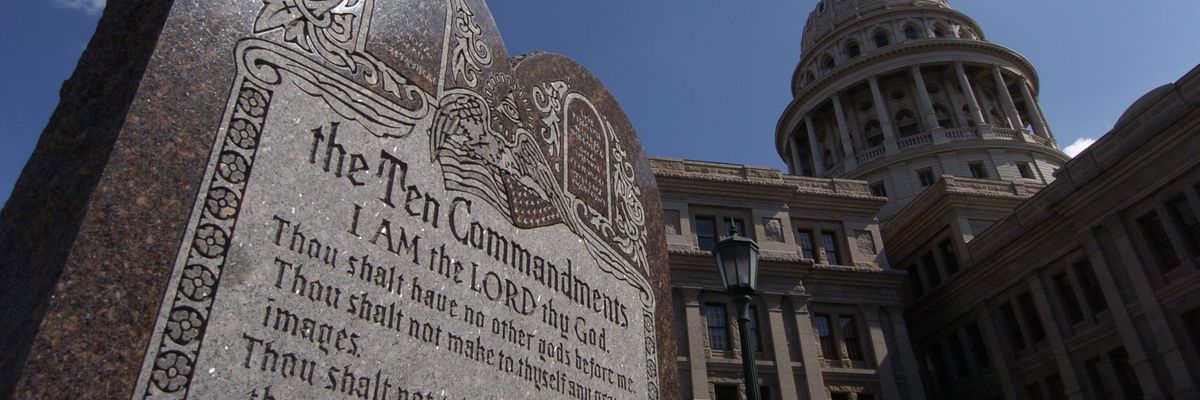A federal judge on Wednesday shot down a Texas law that would have mandated all public school classrooms across the state display the Ten Commandments.
As reported by local news station KSAT, US District Judge Fred Biery of the United States District Court for the Western District of Texas issued a preliminary injunction, ruling that the state's law crossed the line from education to proselytizing on behalf of a specific sect of Christianity.
Noting that "the Ten Commandments set out in Texas's Ten Commandments law differs from the version observed by some Protestant faiths, and most adherents of the Catholic and Jewish faiths," Biery argued that the law violated the First Amendment of the United States Constitution, which states that Congress shall make no law respecting the establishment of a religion.
Biery imagined the uproar that would ensue if the city of Hamtramck, Michigan, which is majority Muslim, passed a law mandating that all public schools post passages from the Quran in all classrooms. He then argued that such a law would be just as unconstitutional as the Texas Ten Commandments law.
"While 'We the people' rule by a majority, the Bill of Rights protects the minority Christians in Hamtramck and those 33% of Texans who do not adhere to any of the Christian denominations," he wrote.
The judge also argued that the classroom displays "are likely to pressure the [students] into religious observance, meditation on, veneration, and adoption of the state's favored religious scripture, and into suppressing expression of their own religious or nonreligious background and beliefs while at school."
Organizations that advocate for the separation of church and state were quick to praise Biery's decision to strike down the law, which had been due to go into effect on September 1.
Tommy Buser-Clancy, senior staff attorney at the ACLU of Texas, said that the ruling affirmed that the state cannot coerce any Texans into adopting a particular religious faith.
“Today's ruling is a major win that protects the constitutional right to religious freedom for Texas families of all backgrounds," he said. "The court affirmed what we have long said: Public schools are for educating, not evangelizing."
Rabbi Mara Nathan, one of the plaintiffs who sued to get the law overturned, welcomed the ruling and stated that "children's religious beliefs should be instilled by parents and faith communities, not politicians and public schools."
Freedom From Religion Foundation co-president Annie Laurie Gaylor similarly said that "religious instruction must be left to parents, not the state, which has no business telling anyone how many gods to have, which gods to have or whether to have any gods at all."
Rachel Laser, president and CEO of Americans United for Separation of Church and State, hailed the ruling and said that it sends a "strong and resounding message across the country that the government respects the religious freedom of every student in our public schools."




